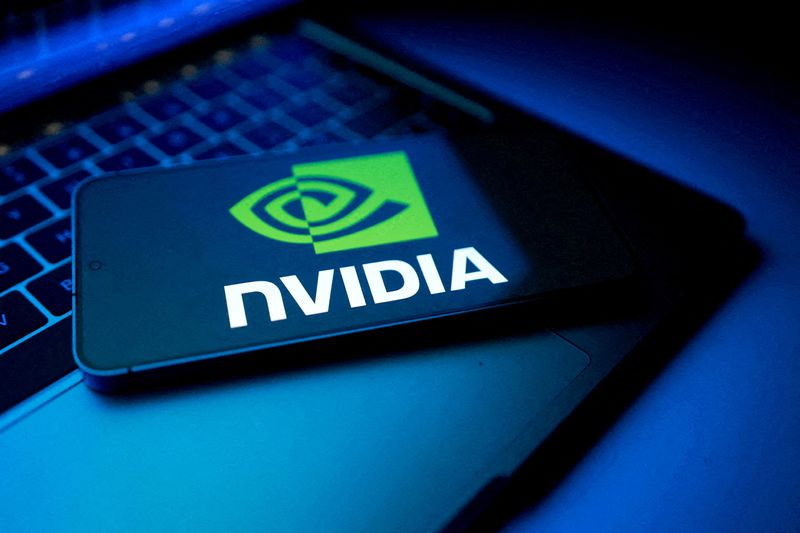Bubble or breakout? Nvidia earnings put AI boom under the microscope
By Arsheeya Bajwa and Aditya Soni
(Reuters) -The fate of Wall Street’s staggering bets on artificial intelligence will rest squarely on Nvidia on Wednesday when the chipmaker reports results, with investors seeking signs that bubble worries are overblown.
Three years after ChatGPT’s debut, investors are increasingly uneasy that the AI boom has outrun fundamentals. Some business leaders have noted that circular deals – where one partner props up another’s revenue – add to the bubble risk.
A few large investors have dumped some of their AI holdings, stoking fears that a market selloff is imminent. Tech billionaire Peter Thiel’s hedge fund sold its entire stake in Nvidia in the third quarter, as has SoftBank CEO Masayoshi Son, although he has plowed those returns into a massive bet on OpenAI.
Doubts have pushed Nvidia shares down 7.9% so far in November, after a 1,200% surge in the past three years. The broader market has declined 2.5% this month.
“With every quarter that goes by, Nvidia earnings become more important in terms of clarification on where AI is moving and how much spending is being done,” said Brian Stutland, chief investment officer of Nvidia investor Equity Armor Investments.
Notwithstanding bubble fears, demand for Nvidia’s chips remains strong, with cloud giants including Microsoft investing billions in AI data centers.
CHIP DEMAND IS STRONG, BUT VALUE IS DEPRECIATING
Nvidia is likely to report a more than 56% jump in its fiscal August-October quarter revenue to $54.92 billion, according to data compiled by LSEG, a far cry from the triple-digit growth it witnessed for many quarters as it faces tougher comparisons. The company has surpassed expectations for the past 12 quarters, though the delta has shrunk.
Nvidia CEO Jensen Huang said last month the company has $500 billion in bookings for its advanced chips through 2026.
“The old Wall Street adage ‘one stock does not a market make’ – that would be incorrect here,” said Neil Azous, portfolio manager of the actively managed Monopoly ETF that holds Nvidia shares. “Nvidia has the ability to make a market.”
But Nvidia’s chips are central to “Big Short” investor Michael Burry’s bet against the company. Burry, who recently shut his hedge fund, argued that large cloud providers were artificially boosting earnings by extending the depreciable life of AI compute gear, such as Nvidia’s chips.
Nvidia now updates chips annually, making older models appear obsolete faster, even as the resale market thrives.



Leave a Comment
Your email address will not be published. Required fields are marked *